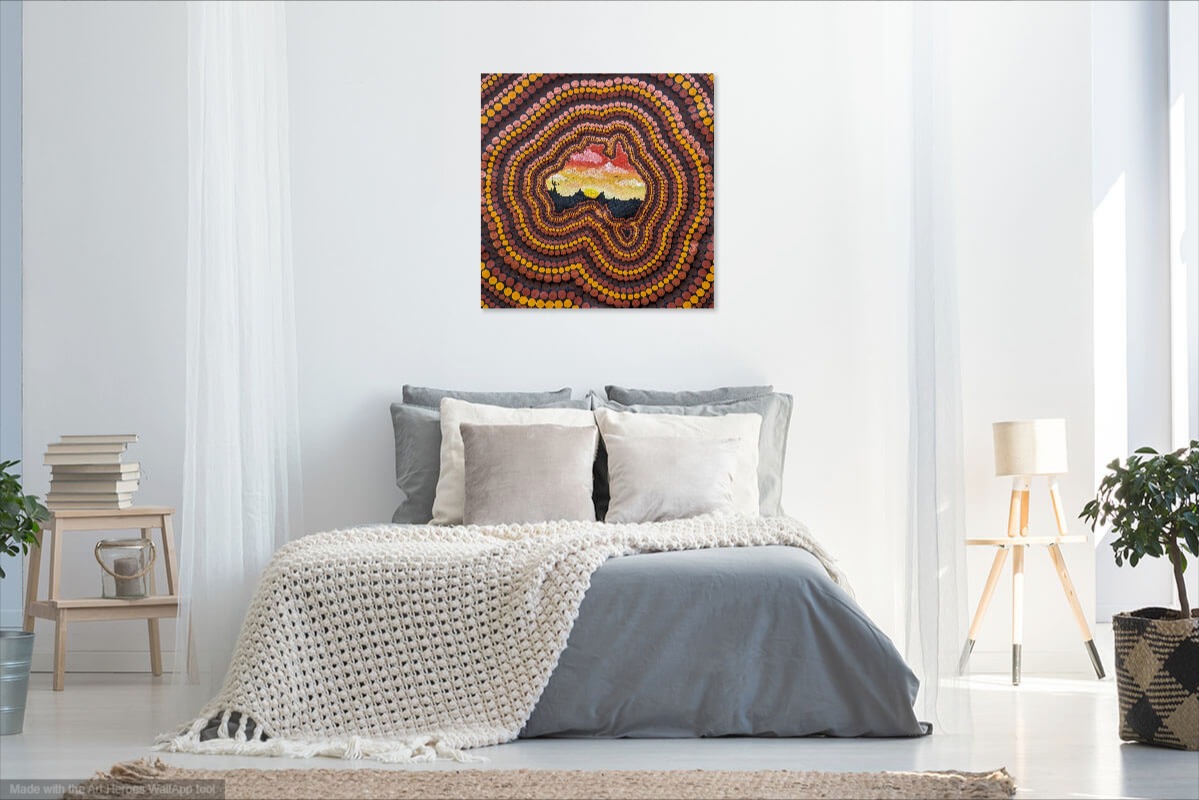
“Always Was, Always Will Be Aboriginal Land” is an important statement within First Nations communities as it reasserts that the very first footprints on this continent were those belonging to First Nations peoples, and that their sovereignty of this Country has never been ceded. It is a clear declaration that First Nations people are still here and are never leaving. A statement of resilience, survival, deep connection and celebration.
The phrase originated during the 1980s Aboriginal land rights movement in far-western New South Wales. Barkandji people were fighting for legal recognition and rights as sovereign owners of their homelands. The late Uncle William Bates was an Barkandji land and legal rights activist. Along with other community members, Uncle William led the campaign that saw the first national park in NSW returned to Traditional Owners, amongst many other achievements for his people.
On one of the many trips out on Country during this land rights campaign, Uncle William’s father, Uncle Jim Bates, became excited and started telling stories of his Country and land. Uncle William said, “Dad, it’s not your land anymore, whitefellas own it,” and Uncle Jim replied, “No, they only borrowed it; it always was, and always will be Aboriginal land.”
“Always Was, Always Will Be” is now often chanted at different gatherings, protests and rallies as a reminder that First Nations people have and will continue to fight for their lands and their rights. It continues to respond to the lack of recognition of First Nations sovereignty that is at the core of much of this nation’s structural inequalities and marginalisation.
Out of stock
Ready to become an art collector? Read more information and answers to frequently asked questions about this collector's item below.

I acknowledge and pay respect to the Traditional Custodians of the land we live and work on. I extend my respects to Elders, both past, present and emerging; and recognise the continuing connection to lands, waters and communities of all Aboriginal and Torres Strait Islander peoples today.